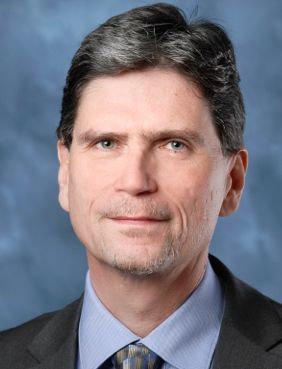Michael Freeman,
Vice Chair of Research, Director, Cancer Biology and Therapeutics,
Cedars-Sinai Medical Center
Dr. Michael Freeman is a professor in the Departments of Surgery, Medicine and Biomedical Sciences at Cedars-Sinai Medical Center, and a professor in the Department of Medicine at the University of California, Los Angeles (UCLA). Dr. Freeman was formerly the David Retik Chair and the founding director of the Urological Diseases Research Center at Boston Children’s Hospital/Harvard Medical School. He is a widely recognized authority on the cell and molecular biology of urologic diseases. Dr. Freeman and his group have conducted pre-clinical studies on the role of cholesterol in prostate cancer, on hypertrophic signaling in bladder smooth muscle, molecular mechanisms of interstitial cystitis/pelvic pain syndrome, and a number of aspects of prostate and bladder cancer progression. Currently he and his group are attempting to understand the role of the amoeboid tumor cell phenotype in prostate cancer evolution to advanced disease. Dr. Freeman has been continuously funded by the NIH since the early 1990s, and he has held many grants from other federal agencies and private foundations. He has also served on many national advisory boards and is the recipient of a number of awards, including a MERIT Award from the NIH, and the John Lattimer and Distinguished Mentor Awards from the American Urological Association.
|

|
|

 Add to Calendar ▼2014-10-26 17:15:002014-10-26 18:15:00Europe/LondonFunctional Roles of Tumor-derived Extracellular VesiclesISEV2014 Educational Event in San Diego, California, USASan Diego, California, USASELECTBIOenquiries@selectbiosciences.com
Add to Calendar ▼2014-10-26 17:15:002014-10-26 18:15:00Europe/LondonFunctional Roles of Tumor-derived Extracellular VesiclesISEV2014 Educational Event in San Diego, California, USASan Diego, California, USASELECTBIOenquiries@selectbiosciences.com Add to Calendar ▼2014-10-26 00:00:002014-10-26 00:00:00Europe/LondonISEV2014 Educational EventISEV2014 Educational Event in San Diego, California, USASan Diego, California, USASELECTBIOenquiries@selectbiosciences.com
Add to Calendar ▼2014-10-26 00:00:002014-10-26 00:00:00Europe/LondonISEV2014 Educational EventISEV2014 Educational Event in San Diego, California, USASan Diego, California, USASELECTBIOenquiries@selectbiosciences.com